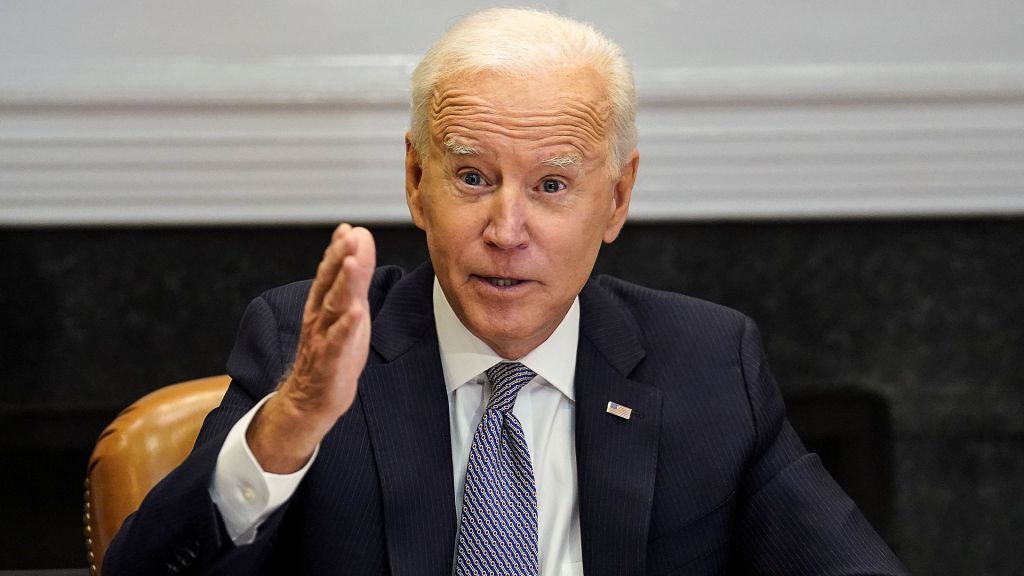
Commentary
-
Our commentary partners will help you reach your own conclusions on complex topics.
Okay, let’s talk about something that truly impacts policy. It impacts the way we manage, supervise and even regulate relationships. It permeates in political, government, private, public, is everywhere. I’m talking about implicit bias. Now I’m going somewhere with this don’t tune out. Before you hear all of the explanation. The reality is being implicitly bias is not evil. It is human. As a matter of fact, every human being that develops to a particular social reality will, in fact, develop implicit bias. Let me put it to you another way. Instead of utilizing the terminology, implicit bias, let’s call it preference, do you have a preference? That means you have a bias? Okay? Do you have a preference? And you’re not quite sure why you have that preference? Why you either like or don’t like a particular thing? That’s called implicit. Okay? You are not aware of where it came from talking about the reason for your preference. Implicit bias works exactly the same. You see, our subconscious mind analyzes 11 million thoughts a day. But our conscious mind can analyze roughly 40,000. What does that mean? That means that our entire day, we are engaged in a mental exercise of implicit bias, everybody. Now, how does it connect to policy? Well, policies are created by people, all people have implicit bias? What about law enforcement or law enforcement, they engage communities and many times they engage these communities with either hyper aware bias, meaning they are aware of their own bias, or they are not. You see, both are very dangerous. Why would we want to eliminate programs that actually would start addressing the issue of the underlying prejudice, that leads to bad behavior from government employees, police officers in particular, you see, implicit bias was never something that should have become a political issue, because it is not. I have implicit bias, you have implicit bias, when these biases start to adversely impact the societal construct around us, that’s when the biases need to be checked. Because the reality is, if you do not check the implicit bias that you do have, that implicit bias will end up checking you. And by extension, it will adversely impact the society your community deserves better. My community deserves better. I’m not saying you need to agree with me in everything that I believe. I’m just saying, we should all agree that being prejudice, that being bias against a particular individual, because of our own preferences, is not a good way to run a company is not a good way to run a government and frankly, is not a good way to live. So let’s deal with it upfront, rather than creating policies to make it illegal to teach diversity, inclusion and equity. Let’s talk about it from a common sense standpoint. Do you think you have implicit bias? Let me save you the trouble? The answer is yes, you do have implicit bias. You have implicit bias just as easily as you have the ability to be angry, or to be happy, to be sad or to experience joy. You see, these things are not debatable. These are facts about the human journey. So let’s treat it as a true human experience that basically everyone experiences on some level and deal with it from that
-
Support democracy or Trump, but you can’t do both
U.S. liberals trace their original suspicion and distrust of Donald Trump back to a series of red flags raised early in the 2016 campaigns. The red flags include several instances where Trump said that he would only accept the results of an election if he wins. Years later, on January 6, 2021, Americans watched that…
-
There is no GOP, there is only MAGA
Donald Trump faces a range of potential criminal charges across numerous cases, from minor civil suits all the way up to sedition and conspiracy against the United States. The former president has consistently portrayed himself as a victim of political “witch hunts” and has sought to delay his court dates to avoid criminal sentencing prior…
-
Narrative of Jan. 6 attack reveals conservative bias, spin
On Jan. 6, 2021, supporters of then-President Donald Trump overpowered police and federal officers, broke into the U.S. Capitol, and then searched the Capitol and surrounding areas for specific Congress members to kill or take hostage in an attempt to overturn the results of the 2020 election. While some took to social media and threatened…
-
Former RNC Chair Ronna McDaniel grifted her way into NBC
Just a week after NBC hired former RNC Chair Ronna McDaniel as a political contributor, a wave of public outcry from several of the network’s stars compelled it to reverse its decision. McDaniel had joined shortly after stepping down from her role at the RNC, where she had vocalized support for former President Donald Trump’s…
-
Why doesn’t ‘billionaire’ Trump have money to pay fraud judgment?
Former President Donald Trump has until Monday, Mar. 25 to come up with a $464 million appeal bond to meet a New York court’s civil fraud judgment. Despite being the likely Republican presidential nominee, he’s struggling to find a company willing to provide the bond. Trump tried to get a bond for the full amount,…
Latest Stories
-
 AP Images
AP Images
Argentina asks to join NATO as Milei looks to enhance security, strengthen ties
-
 Getty Images
Getty Images
Utah students protest 'furries,' school admin deny problem
-
 Reuters/Jane Rosenberg
Reuters/Jane Rosenberg
Trump’s ‘hush money’ trial: Legal experts debate name coined by media.
-
 AP Images
AP Images
Black Chicagoans feel neglected as millions funneled to migrant crisis
-
 Envato
Envato
Congress wants to curtail ‘judge shopping.’ Can it act before the election?
Popular Opinions
-
In addition to the facts, we believe it’s vital to hear perspectives from all sides of the political spectrum.
Latest Opinions
In addition to the facts, we believe it’s vital to hear perspectives from all sides of the political spectrum. We hope these different voices will help you reach your own conclusions.
The opinions published in this section are solely those of the contributors and do not reflect the views of Straight Arrow News.

















Latest Commentary
We know it is important to hear from a diverse range of observers on the complex topics we face and believe our commentary partners will help you reach your own conclusions.
The commentaries published in this section are solely those of the contributors and do not reflect the views of Straight Arrow News.
Peter Zeihan
Geopolitical StrategistAre Russia’s hypersonic missiles too good to be true?
Norway sending F-16s to Ukraine
Russians targeting civilian emergency crews in Ukraine
Dr. Frank Luntz
Pollster and Political Analyst‘Take the job seriously’: Why Americans are fed up with Congress
‘If we can shrink it, it will stop growing’: Americans talk debt, deficit
‘I don’t think they care’: Undecided voters explain their reasons
Pete Ricketts
U.S. Senator for Nebraska